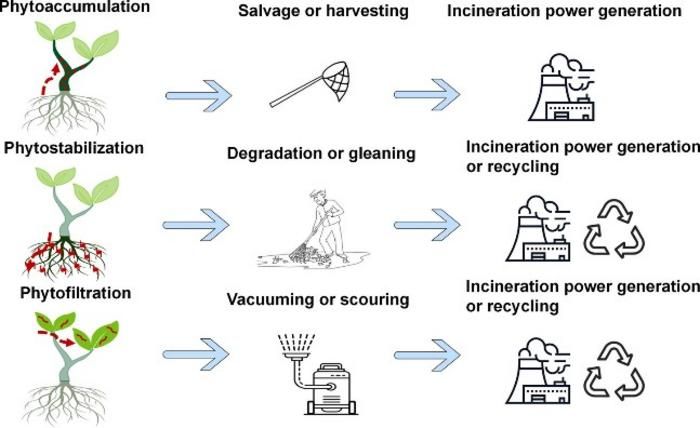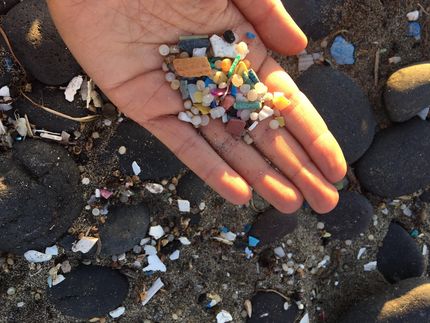Green warriors: plants on the frontline against microplastics
Advertisement
In an ecological article, researchers have unveiled the potential of phytoremediation to curb microplastic pollution. This approach leverages natural plant processes to absorb and diminish micro and nanoplastics, offering a viable solution for managing environmental plastic pollution. This viewpoint advocates utilizing plant life as an effective tool against the widespread issue of plastic contamination in ecosystems.

Possible mechanisms and technological process of micro/nanoplastics phytoremediation. The plastics absorbed and intercepted by plants can be recycled through different processes for incineration power generation, reuse, or degradation through other chemical and biological measures.
Eco-Environment & Health
With escalating concerns about the enduring impact of plastic waste, phytoremediation emerges as a promising solution. This method utilizes plants to capture and degrade pollutants, providing an environmentally friendly and cost-effective alternative to traditional techniques. As plastics continue to inundate ecosystems worldwide, advancing phytoremediation could revolutionize our environmental management strategies. Addressing these challenges, there is an essential demand for comprehensive research to enhance and apply phytoremediation effectively.
Proposed by the Hubei Key Laboratory of Wetland Evolution & Ecological Restoration, this pivotal perspective explores how plants can alleviate micro/nanoplastic pollution. The research identifies possible mechanisms and technological pathways for phytoremediation to combat plastic pollution, potentially delivering a sustainable solution for polluted environments across terrestrial, aquatic, and atmospheric realms.
This novel perspective evaluates the potential of different types of plants to capture, stabilize, and filter micro and nanoplastics. Targeted hyperaccumulators are expected to significantly lower plastic concentrations, thus preventing their further spread. The perspective delves into the application of phytoaccumulation, phytostabilization, and phytofiltration across diverse environmental settings. By strategically selecting and positioning these plants, they not only sequester harmful plastics but also convert them into harmless or useful forms, marking a substantial advance in sustainable plastic remediation.
Dr. Yuyi Yang, the study's lead researcher, underscores its transformative potential, stating, "Phytoremediation isn't merely a technique; it's a sustainable revolution in our battle against plastic pollution. By harnessing plant-based solutions, we are able to lessen the environmental burden of plastics, turning waste into valuable resources and fostering a healthier planet."
The study's findings are significant, advocating for the integration of phytoremediation within existing waste management frameworks to boost both efficacy and sustainability. This strategy not only reduces pollution but also aids in ecosystem recovery, enhancing biodiversity and ecological health. The research calls for expanding phytoremediation practices, highlighting the necessity for holistic strategies that encompass prevention, interception, and recycling of plastics using advanced green technologies.


































































